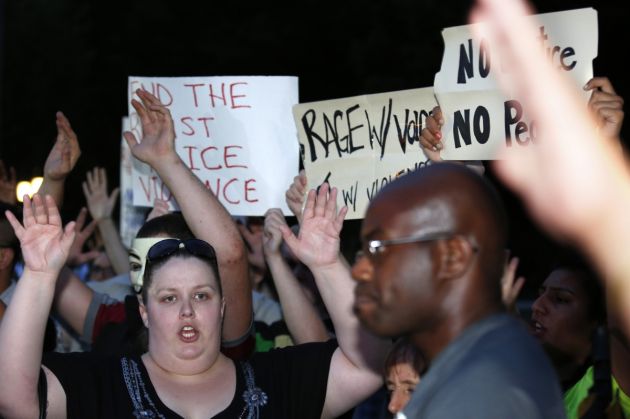World churches body urges Missouri calm, policing reform after race-charged shooting

The World Council of Churches has called for prayer, calm, peaceful protest, and honest dialogue on racism and issues of class following a racially charged police shooting in the U.S. state of Missouri.
Churches, faith communities, ecumenical and interfaith partners and civil society organizations and coalitions have "called for prayer, calm, peaceful protest, and open and honest dialogue on racism and issues of class."
They have support from the WCC, the churches body said in a statement Thursday.
Writing to the Interfaith Partnership of Greater Saint Louis, the general secretary of the WCC, Rev. Olav Fykse Tveit praised area churches and religious communities that have sought an end to conflict.
This followed "the tragic killing by a police officer of Michael Brown, an unarmed 18-year-old African American man, and the dangerous escalation of violence in the several days following," said the WCC statement.
Tveit also praised their common efforts toward building peace, the promotion of healing within the community and a process of reconciliation at local and national levels.
On Monday, Jim Winkler, president and general secretary of the National Council of Churches in the U.S.A., deplored the killing of Michael Brown and others like it.
He called for a thorough investigation of the shooting, and drew attention to the larger issues raised by such deaths.
"These killings, as well as those of hundreds of other Americans each year at the hands of increasingly militarized police forces [are] of great and growing concern.
"A peaceful, healthy society requires trust and positive relationships between citizens and law enforcement. That can best occur in circumstances in which deep-seated social problems such as racism and inequality are being addressed," said Winkler.
Tveit assured the family of Brown and the wider community of "the prayers of this global fellowship of churches."
He said the WCC supports "honest examination and reform related to policing policies and practices."
